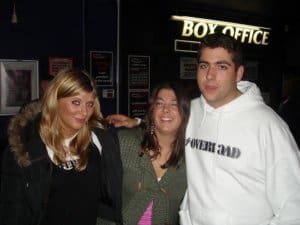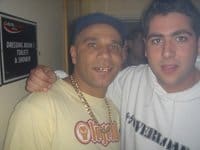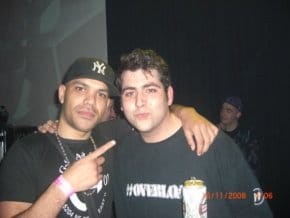Nightclub promoters are responsible for organising and publicising entertainment events at one or more club premises.
Being a nightclub promoter involves using a range of interpersonal and business skills to create appealing and successful events at nightclub venues, essentially sharing the management of the club at these times.
While some clubs do employ full-time promotion staff, most promoters work freelance, organising events where they can make the most profit or build a good reputation.
Common tasks would include:
- Booking performance artists such as singers, DJs and musicians.
- Negotiating with club owners.
- Setting door prices and organising special promotions.
- Liaising with artists’ agents.
- Organising publicity for events, including flyers and posters.
- Distributing publicity materials.
- Ensuring the smooth running of events on the night.
- Providing V.I.P. lists.
- Liaising with security and bar staff.
- Managing budgets and accounts.
Salary
Although there are a few large promotions operations that make good money consistently, it is notoriously difficult to get significant financial rewards from promoting.
Most promoters are self-employed and may sometimes only cover their costs.
While some events may attract sell-out crowds, others will lose money, and the business itself is quite unpredictable due to the various factors affecting crowd attendance.
Even with the best publicity, events can still fail.
Income for nightclub promoters usually comes on an event-by-event basis and the scale and associated costs of an event determine the potential earnings.
A major event with a crowd of 1000-2000 people could make as much as £10,000.
Smaller events could hope to make £400-£1000.
These takings have to be balanced against the cost of booking, the cost of publicity materials and distribution, time spent organising and promoting, and sometimes a percentage cut to the club owner.
Responsibilities
The ultimate aim of the nightclub promoter is to draw a big crowd, create a safe and enjoyable atmosphere in which people can enjoy themselves, and make money for themselves, the club, or both.
Successful promoters will hope to establish a name and reputation and offer regular events with a consistent and popular appeal, with the aim of attracting a loyal following.
Qualifications
No specific qualifications are needed to become a nightclub promoter, and even large-scale projects can be attempted with no formal or academic experience.
However, track record is very important for freelance promoters, as owners of large clubs will want to see some evidence of reliability, trustworthiness and the ability to draw a crowd, before they enter a working relationship.
With regards to contracted or full-time promoters, some qualifications showing business, financial and organisational skills would be an asset, if not a pre-requisite, although experience might be enough to secure a position.
Skills

Being a nightclub promoter requires a range of skills, including:
- Good knowledge of popular music and culture.
- Good business and negotiation skills.
- Good interpersonal skills to manage a network of contacts.
- Awareness of supply of and demand for events.
- Self-discipline and the ability to manage accounts.
Working Conditions
Many promoters would say they have one of the best working environments possible, a nightclub.
In reality, relatively little time is spent inside the club and much more time on travelling to organise and distribute publicity materials, transport equipment and coordinate an event before it happens.
This can mean working from a computer or in an office.
Inside the club, there may be high noise levels, but working conditions are otherwise fairly comfortable.
Experience
Experience, reputation and track record are very important for a promoter.
Building a name for an event and encouraging people to come is not easy without experience, and an unsuccessful night will not only lose money but will fail to draw crowds in the future.
It is vital that promoters know how to maximise profit by establishing a network of connections, amongst DJs, club owners and promotions assistants.
Knowing when and where to stage an event, what acts to book, what market to target and how to target it, are key skills that improve with experience.
Creating a buzz around an event is made much easier once a successful night has been achieved, and helps to make it a lasting success.
Major Employers

The majority of nightclub promoters are self-employed, working as freelance nightclub promoters, and there are hardly any major employers in this line of work.
For full-time promoters, the employers are large nightclubs, but even these tend to employ external promotions agents to secure most of their business.
Clubs that might employ promotions staff would include:
Career Progression
Although there is no formal framework for career progression, establishing a good reputation allows a promoter to tackle bigger and better projects, all the way up to festival-sized and weekend events, and to organise events in other countries.
Some promoters are also keen to buy their own club premises in order to tap into the more lucrative aspects of nightclub events, namely drinks sales.
Owning a club can also help to establish the reputation of an event (and the promoter) and increase its popularity.
Also known as…
- Promoter
- Promotions Agent
Related Jobs
- Graphic Designer
- DJ
- Nightclub Owner
What’s it really like?
Daniel Bekhradnia, 25, is a nightclub promoter working in Bristol and Bath.
How long have you been working as a nightclub promoter?
For around five years.
I was keen to start organising events when I came to university in Bristol.
There is a big market of young people with disposable income who want to have a good time, so it’s a good place to start.
Another friend from home was also studying at the same time as me, and we decided to try and put something together that was better than what all the other promoters were doing.
We both loved drum and bass so we started to think of a name for the night, and concentrated on putting something together that we would enjoy ourselves.
Our first event was quite small and we didn’t make any money, but we minimised costs by getting our friends to do the DJ-ing and by using their equipment, and the events grew in popularity and we were able to book bigger bigger acts, move to bigger venues, and start to make a bit of money.
As the name grew we got more trust and respect and could start to plan ahead more.
What do you do in a typical day at work?
After much trial and error we discovered that the most money is to be made from staging events at key times, such as at university freshers’ weeks, where people want to go out and spend money.
Although we did have a series of regular events for a time, they proved quite unpredictable and so we focussed on trying to stage events that had as little chance of failure as possible.
Because of this irregularity there isn’t really a typical day to follow, it all depends on where in the process things are.
The standard experience is one of juggling priorities and taking care of the fine organisational details.
The first thing to do is book the club and book the acts.
If you want a big venue and big names this has to be done months in advance, including paying deposits and booking transport.
After this is done the posters and flyers have to be designed, printed and distributed.
Then it is a case of trying to get the word around, increasing publicity to a peak just before the event actually happens.
What do you like and dislike about the job?
If you love the music then there is nothing better than working really hard spending time putting together a great line-up and coordinating everything, then seeing it all come together on the night.
If it goes well you have hundreds of people making a great atmosphere and you are the host so you can treat your friends to drinks and the V.I.P. treatment.
You can also make good money but you can never rely on doing so, and this is a real downside – income stability is difficult to achieve and you can go to all that effort and end up paying for it, which is very disappointing.
It is nice to be part of the scene, and I enjoy the business aspects and the process of dealing with all the different parties involved.
If you put on good nights you get to know other people with the same interests and everyone is very friendly.
Any other advice?
The business is extremely competitive and people will copy success so you need to stay one step ahead wherever possible.
It is important to run a strict business and not to let people freeload or charge you too much.
Try to get discounts when booking, or on the cost of printing materials by shopping around.
Find reliable people to work with and have a back-up plan for when things go wrong, by keeping spare equipment for example.
Finally, negotiate with club owners.
If you can prove you can make them money then you can ask for better terms.










